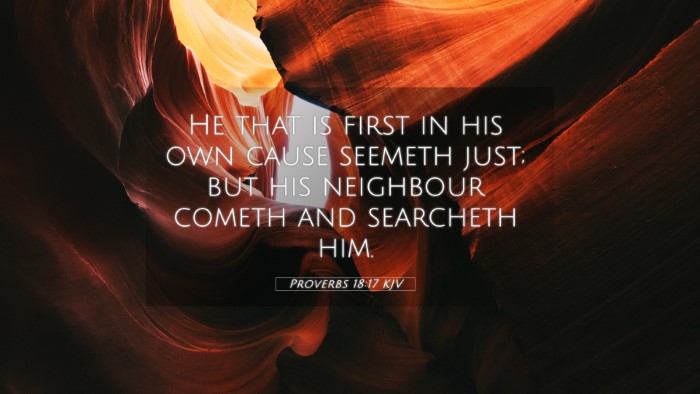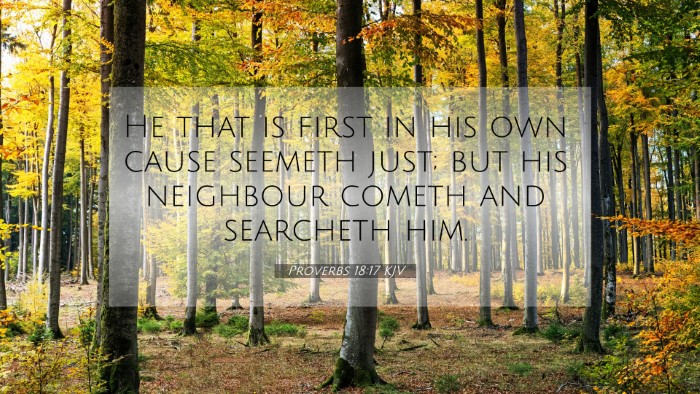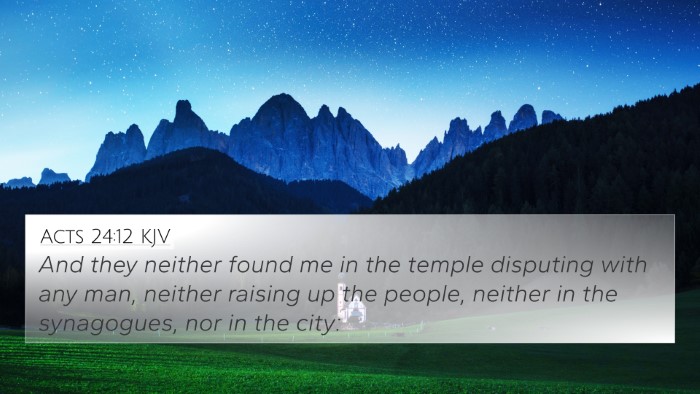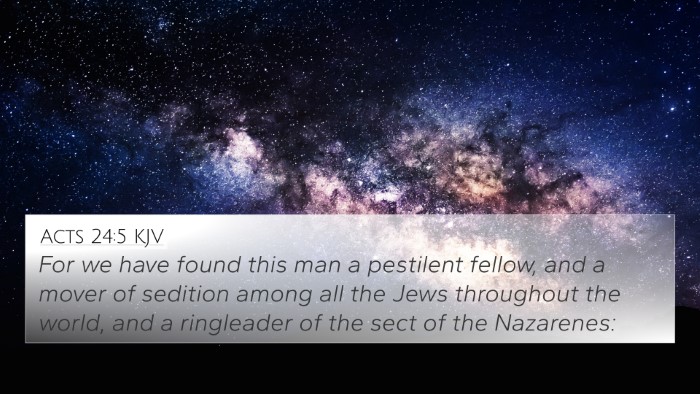Understanding Proverbs 18:17
Proverbs 18:17 states: "The first to plead his cause seems right, until his neighbor comes and examines him." This verse succinctly encapsulates the nature of human perspective and judgment, particularly when assessing disputes or accusations.
Summary of Meaning
This verse highlights the tendency of individuals to believe their own account of events or arguments without considering the viewpoints of others. It emphasizes the importance of hearing multiple sides before reaching a conclusion. The implications of such a theme are profound in moral and ethical decision-making, advising us not to rush to judgment.
Commentary Insights
-
Matthew Henry: Henry points out that this verse warns about the biases present in human nature. It stresses the danger of forming judgments based solely on first impressions or self-serving narratives.
-
Albert Barnes: Barnes elaborates on the idea that the initial impression of a situation can be misleading. He highlights the need for continuous discernment and the importance of revisiting arguments to achieve a truer understanding of the facts.
-
Adam Clarke: Clarke focuses on the societal implications of this verse, emphasizing how often communities judge individuals based on the loudest or most persuasive voice, neglecting a comprehensive analysis of the situation.
Bible Verse Cross-References
This verse can be cross-referenced with several others that illuminate similar themes of judgment and perspective:
- Proverbs 12:15: "The way of a fool is right in his own eyes, but he who heeds counsel is wise."
- Proverbs 21:2: "Every way of a man is right in his own eyes, but the Lord weighs the hearts."
- James 1:19: "So then, my beloved brethren, let every man be swift to hear, slow to speak, slow to wrath."
- John 7:24: "Do not judge according to appearance, but judge with righteous judgment."
- Proverbs 18:13: "He who answers a matter before he hears it, it is folly and shame to him."
- Matthew 7:1-2: "Judge not, that you be not judged. For with what judgment you judge, you will be judged."
- Proverbs 25:8: "Do not hastily bring into court, for what will you do in the end when your neighbor has put you to shame?"
Thematic Connections
The theme of this verse extends into a broader scriptural context regarding wisdom and understanding in judgment. Let us explore some connections:
-
Judgment and Righteousness: The concept of making wise judgments is explored throughout the Book of Proverbs, notably in Proverbs 2:6, where it states, "For the Lord gives wisdom; from His mouth come knowledge and understanding." This provides deeper insight into why discernment is key in forming judgments.
-
Listening Before Speaking: The New Testament also echoes this sentiment. In Proverbs 18:13, it advises against speaking before all the facts are known. This principle is mirrored in how Jesus teaches caution in judgment, urging discernment and careful listening.
Conclusion
In summary, Proverbs 18:17 serves as a timeless reminder of the complexities of human communication and the necessity for patience when evaluating differing perspectives. It calls for a reflective and cautious approach to speaking and judgment, making it a relevant verse for anyone seeking to understand the nature of relationships and conflict resolution. Through cross-referencing with other Biblical texts, readers gain insight into the importance of balanced judgment and the dynamics of interpersonal communication.
Tools for Deepening Understanding
To further explore these themes and understand scripture more deeply, utilizing Bible cross-reference guides can be immensely beneficial. Such tools include:
- Bible Concordance
- Bible Cross-Reference Guide
- Cross-Reference Bible Study
- Comprehensive Bible Cross-Reference Materials







